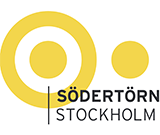Introduction
Södertörn University is a public university located in the Södertörn area south of Stockholm, the capital of Sweden. It is known for its interdisciplinary education and research, and its expertise in the Baltic region and Eastern Europe.
Overview
Number of students and faculty: There are about 13,000 students and 481 faculty members.
Course settings: It offers courses and degree programs in the humanities, social sciences, natural sciences, technology and other fields, including more than 100 courses and 13 master's programs taught in English.
History and establishment time
It was established by the Swedish Parliament in 1995 and in 1996 It was formally established in 2000. The background of its establishment is the low conversion rate of higher education, high unemployment rate and prominent racial segregation in southern Stockholm. It aims to promote the development of the region through the development of higher education.
School Strength
Teaching Staff: It has a high-quality teaching staff. The teachers have rich teaching and research experience in their respective disciplines and can provide students with professional guidance and cutting-edge academic knowledge.
Scientific Research Level: It carries out high-quality research work in multiple disciplines such as humanities, social sciences, natural sciences, and education. Its research on the Baltic Sea region and Eastern Europe is at the world's leading level. Research centers include the Baltic and Eastern European Research Center, the School of Public Administration, the Practical Knowledge Research Center, the Entrepreneurship Research Forum, etc., providing students and researchers with a creative academic exchange platform.
Teaching Resources: It has established cooperative relationships with local and international enterprises and institutions, providing students with internship and employment opportunities. At the same time, the school is equipped with modern teaching facilities and laboratories to meet the learning and scientific research needs of students.
Institutional Nature
Public University.
Educational Philosophy
Focus on interdisciplinary learning and research, emphasize the combination of theory and practice, and strive to cultivate students with innovative thinking, critical spirit and social responsibility, so that they can play an active role in a diversified society, and provide students with an open and inclusive learning environment, encouraging students to actively participate in academic exchanges and social practice activities.
Key laboratories and disciplines
Key disciplines: covering multiple disciplines such as humanities and arts, social sciences, natural sciences and technology, among which philosophy, history, cultural studies, sociology, psychology, biology, environmental science, computer science and other disciplines have strong strengths and characteristics. For example, the school is the only higher education institution in Sweden that teaches and studies philosophical schools such as German idealism, existentialism, deconstructionism and critical theory.
Key laboratories and research centers:
Centre for Baltic and East European Studies (CBEES): Focusing on the research of politics, economy, society, culture and other aspects of the Baltic region and Eastern European countries, it provides a platform for students and researchers to gain an in-depth understanding of the region and promotes academic exchanges and cooperation between regions.
Academy of Public Administration: Dedicated to theoretical and practical research in the field of public administration, cultivating professional public administration talents for governments, non-profit organizations, etc., and promoting the development of public administration disciplines and practical innovation.
Centre for Studies in Practical Knowledge: Focusing on the generation, dissemination and application of practical knowledge, through interdisciplinary research methods, exploring the role and value of practical knowledge in different fields, and providing theoretical support and practical guidance for solving practical problems.
Forum for Research on Entrepreneurship: Provides a platform for communication and cooperation for entrepreneurship research, bringing together researchers and entrepreneurs from different disciplinary backgrounds to discuss various issues in the entrepreneurship process and promote the development of entrepreneurship theory and practice.
Faculty
The school has 4 academic colleges, namely:
School of History and Contemporary Studies: Covering disciplines such as history, archaeology, archival science, and intellectual history, through research on the past and present, it cultivates students' historical thinking and analytical skills, and provides students with opportunities to gain an in-depth understanding of the development of human society.
School of Culture and Education: including cultural studies, pedagogy, teacher education, art and other disciplines, focusing on cultural inheritance and innovation, educational theory and practice, and committed to cultivating talents with cross-cultural communication skills and educational professional qualities.
School of Social Sciences: involving multiple disciplines such as sociology, political science, economics, psychology, social work, and international relations, aiming to enable students to understand social phenomena and social problems, master the research methods and theories of social sciences, and provide scientific basis for solving social problems.
School of Natural Sciences, Technology and Environmental Studies: covering disciplines such as biology, environmental science, computer science, and media technology, focusing on the integration of natural sciences and technology, and cultivating students' professional knowledge and practical ability in the fields of natural sciences and technology to cope with the environmental and technological challenges facing modern society.
Ranking
In the 4icu World University Rankings, the university is ranked 25th in the country and 2687th in the world.
Fees
Application fee: Students who are not citizens of the EU, EEA or Switzerland need to pay an application fee of SEK 900.
Tuition fees: The annual tuition fee for courses in the humanities, social sciences and law is SEK 90,000, and the annual tuition fee for courses in the natural sciences is SEK 140,000.
Campus
Location: The main campus is located in Flemingsberg, Huddinge, Stockholm County, only 19 minutes by commuter train from the center of Stockholm. In addition, the area is an area with a strong entrepreneurial atmosphere, surrounded by many small companies and emerging life science companies, providing students with rich internship and employment opportunities.
Campus environment: The campus buildings are modern and beautiful, with complete facilities, including teaching buildings, libraries, laboratories, student dormitories, restaurants, sports facilities, etc., providing students with good learning and living conditions.
-
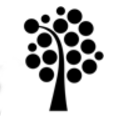
Linnaeus University
-
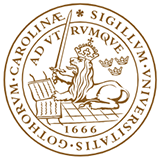
Lund University
-
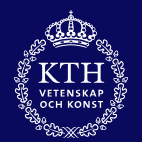
KTH Royal Institute of Technology
-
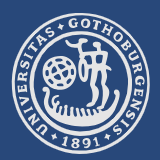
University of Gothenburg
-
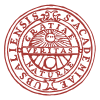
Uppsala University
-
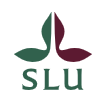
Swedish University of Agricultural Sciences
-

Halmstad University
-
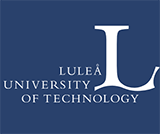
Luleå University of Technology
-
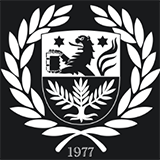
University of Skövde
-
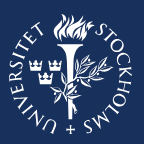
Stockholm University
-

Mesoamerican University
-

Istmo University
-

Mariano Galvez University of Guatemala
-

Regional University of Guatemala
-

Galileo University
-

Francisco Marroquín University
-

Rafael Landívar University
-

University of the Valley of Guatemala
-

University of San Carlos of Guatemala
-

Technological Institute of Tlaxcala Plateau
-

Golfo University
-

Technological University of South Sonora
-

Technological University of Huejotzingo
-

Tizimín Institute of Technology
-

Chilpancingo Institute of Technology

